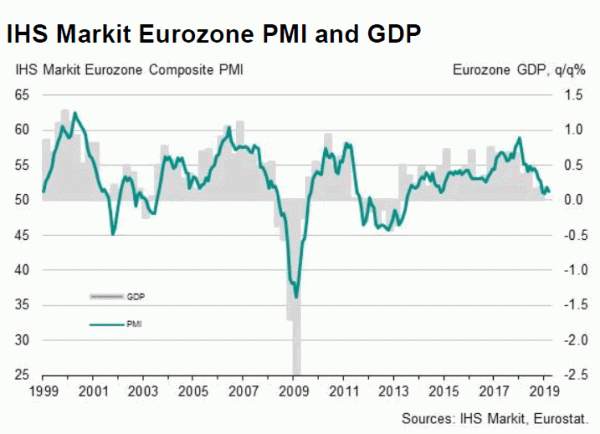In March, Eurozone PMI manufacturing dropped to 47.6, down from 49.3 and missed expectation of 49.5. That’s also the lowest level in 71 months. PMI services dropped slightly to 52.7, down from 52.8, matched expectations. PMI composite dropped to 51.3, down from 51.9.
Commenting on the flash PMI data, Chris Williamson, Chief Business Economist at IHS Markit said:
“The eurozone economy ended the first quarter on a soft note, with the flash PMI running at one of the lowest levels seen since 2014. The survey indicates that GDP likely rose by a modest 0.2% in the opening quarter, with a decline in manufacturing output in the region of 0.5% being offset by an expansion of service sector output of approximately 0.3%.
“A rebound in February from one-off factors such as the yellow vest protests in France appears to have already lost momentum. Most worrying is the plight of the manufacturing sector, which is now in its deepest downturn since 2013 as trade flows contracted at the sharpest rate since the debt crisis-ridden days of 2012. The service sector is showing more resilience, notably in Germany, but remains in one of its worst growth patches since 2016.
“Forward-looking indicators such as business optimism and backlogs of work suggest that growth could be even weaker in the second quarter. Worryingly, with order book backlogs shrinking at the steepest rate since late-2014, more and more companies are pulling back on hiring, and likely reviewing their investment spending.
“Any such further loss of growth momentum in the second quarter compared to the 0.2% GDP rise signalled for the first three months of the year would raise doubts on the economy’s ability to grow by more than 1% in 2019.”

